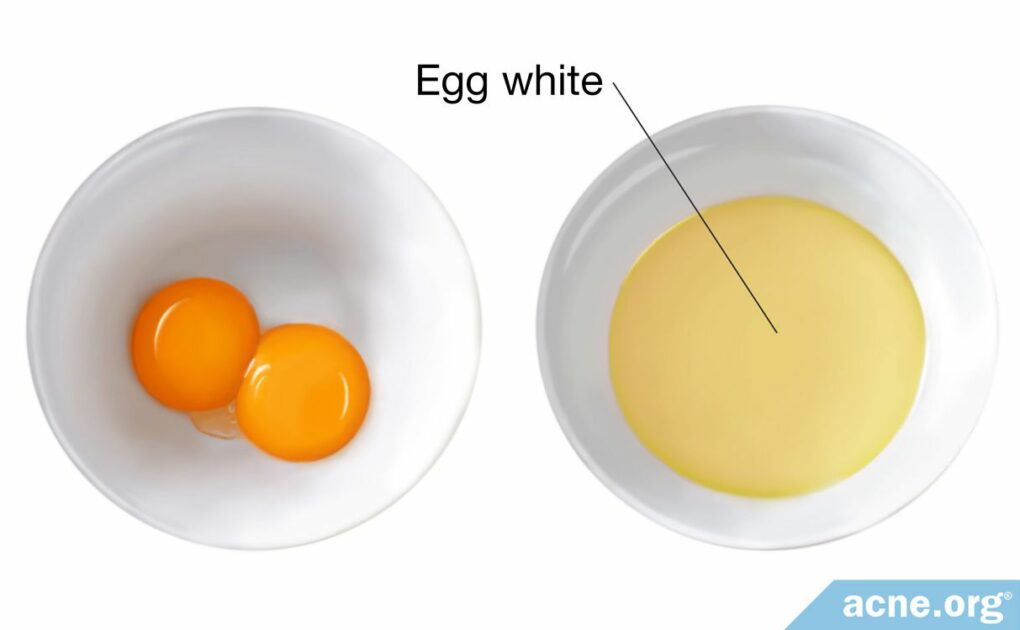Egg Whites Have Not Been Studied as an Acne Treatment, but They Do Demonstrate Medicinal Properties That Might Affect Acne

The Essential Info
Acne is in part a bacterial disease and acne lesions are essentially small wounds to the skin.
Egg whites are antibacterial and might promote wound healing, so there is a possibility that they may be beneficial for acne.
However, there are no studies on topical egg whites and acne, so it is difficult to determine whether application of egg whites might improve acne, and if so, to what degree.
Based on the science we do have regarding the antibacterial and wound healing properties of egg whites, if they do work, they are likely to only work to a small degree.
Use Chilled Eggs: If applying egg whites to the skin, be sure to use eggs directly from the refrigerator, and not room-temperature eggs.
Keep Expectations Realistic: Even if egg white masks do work to some degree, they are unlikely to produce dramatic clearing of acne. If you don’t suffer from acne, an egg white mask can be fun. But if you do suffer from acne, it may be better to spend your time looking for proven methods that will clear your acne.

The Science
- Antibacterial Properties of Egg Whites
- Wound Healing Properties of Egg White
- Pro- and Anti-inflammatory Properties of Egg White
- The Bottom Line
- Skip Down to How to Do It
An egg white’s primary function is to protect the egg yolk from bacterial invaders and provide additional nutrition for the growth of the embryo.
Egg white is 88% water and 11% protein. The remaining 1% is made up of carbohydrates and fatty acids.1
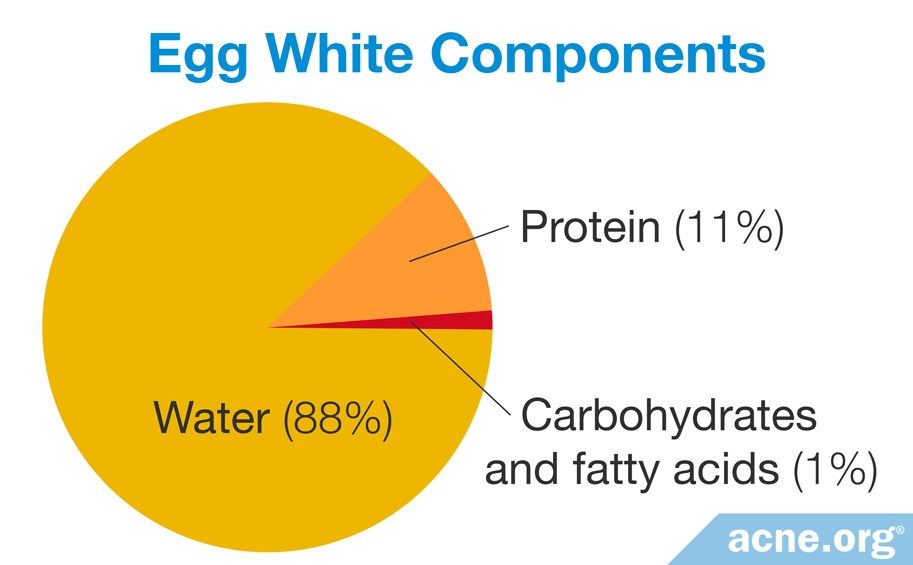
Egg white masks are an increasingly popular at-home treatment for acne. However, scientists have not performed any clinical studies examining the effect of topical egg whites on acne.
Still, there are several medicinal properties of egg whites that may be relevant to the treatment of acne. Specifically, egg whites exhibit two properties that may help reduce acne:
- Antibacterial: Egg whites demonstrate an antibacterial effect against some strains of bacteria that are similar to acne bacteria.
- Wound healing: Preliminary evidence suggests that egg whites may speed wound healing, a relevant finding for acne since acne lesions are essentially small wounds.
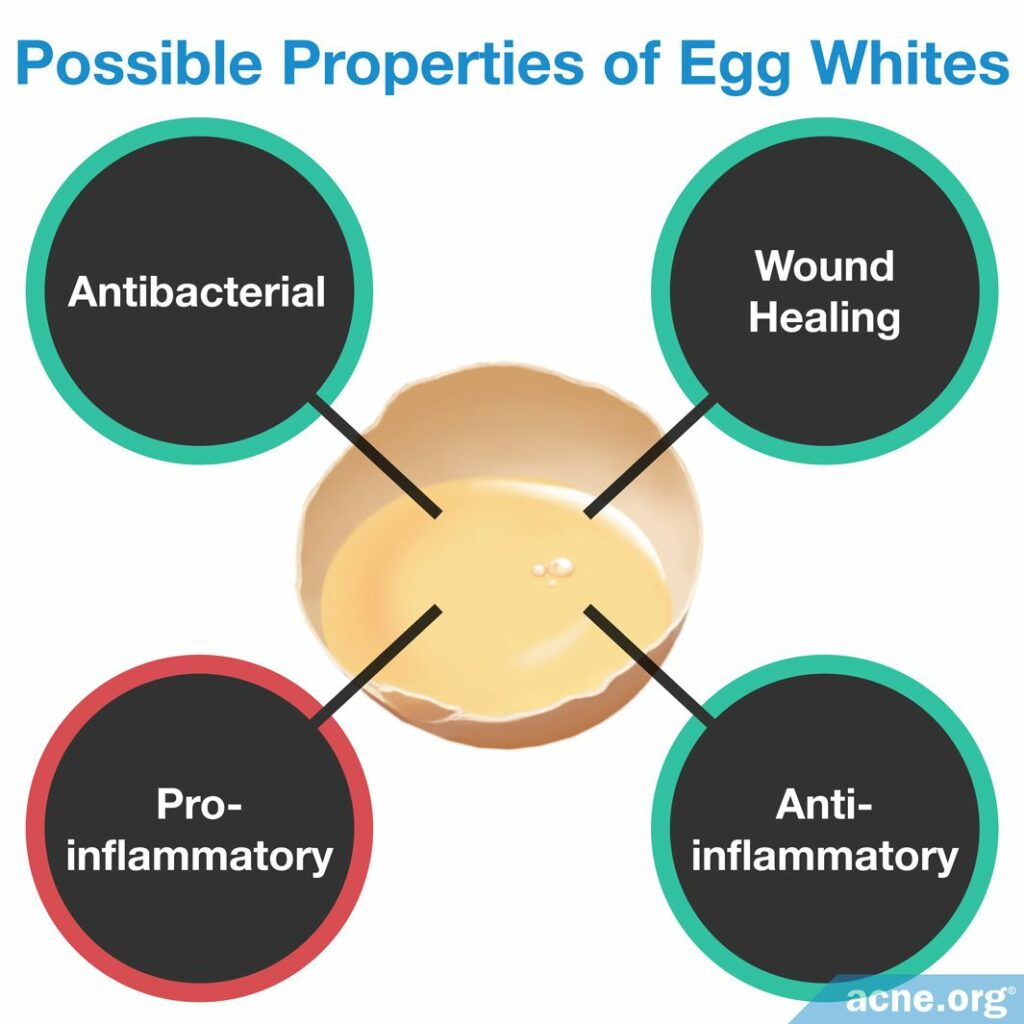
Egg whites also exhibit one property that may either reduce or increase acne:
- Pro- and anti-inflammatory: Acne is an inflammatory disease. When it comes to inflammation, egg whites may be both pro-inflammatory (increase inflammation) and anti-inflammatory (reduce inflammation).
So as we can see it’s something of a mixed bag, but overall, on balance, it looks like egg whites might have more beneficial qualities.
Let’s have a closer look at how the antibacterial, wound healing, and pro- or anti-inflammatory properties of egg whites might affect acne.
Antibacterial Properties of Egg Whites
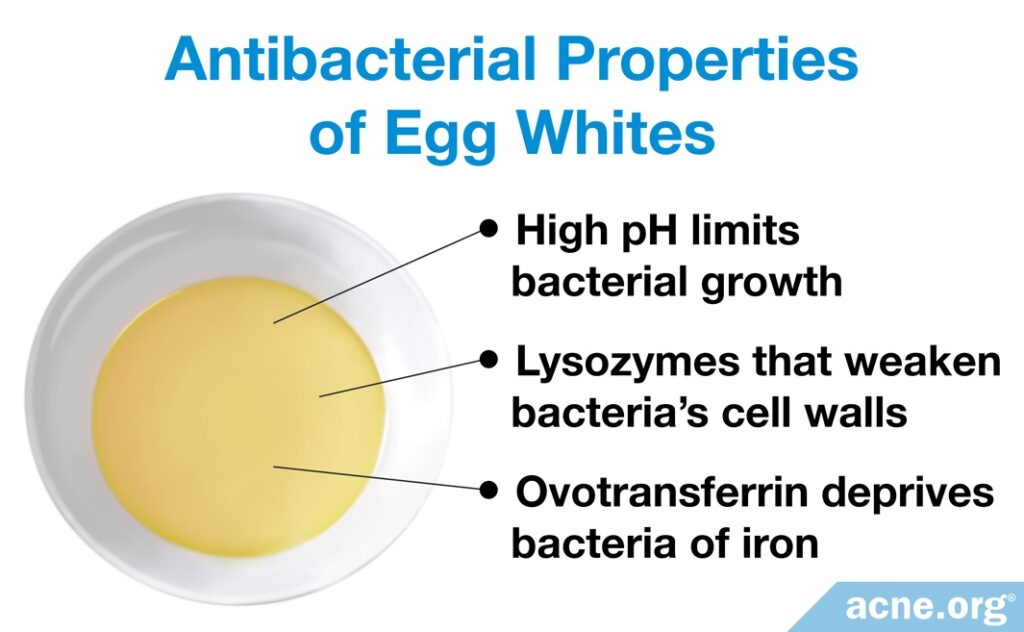
Bacteria, particularly a strain of bacteria called C. acnes, may aggravate acne, and therefore the antibacterial activity of egg whites might be helpful in the treatment of acne. Scientists have shown that egg whites are able to prevent the growth of some strains of bacteria that are similar to C. acnes, and from this data we can hypothesize that egg whites may also help prevent the growth of C. acnes, although we can’t know for certain until a study is performed specifically on C. acnes.2,3
There are three main components of egg whites that make them antibacterial:
- A high pH, which limits bacterial growth
- Lysozyme, an enzyme that weakens bacteria through compromising the bacteria’s cell walls
- Ovotransferrin, a substance that deprives bacteria of the iron they need to survive
Expand to have a closer look at how pH, lysozymes, and ovotransferrin reduce bacteria
High pH
The pH of egg white, which is high, creates an unfavorable environment for bacterial growth. This is demonstrated in results from a 1952 study.3,4

The 1952 in vitro study published in the Journal of Bacteriology showed that the antibacterial effect of egg white increased each time the scientists increased the pH of the egg white medium in which they were growing bacteria.3,4
Lysozyme
Lysozyme is another way that egg white is antibacterial. Lysozyme is an enzyme in egg white that attacks a specific protein called peptidoglycan that is present in the bacterial cell walls, causing the cell wall to weaken. The body’s defense systems can then break into the bacteria’s weakened cell walls and kill the bacteria. Additionally, once the bacterial cell wall is weakened, it will fail to regulate the flow of water and minerals into the cell, resulting in too much water and too many minerals accumulating inside the bacterial cell – eventually causing the cell to burst.
C. acnes bacteria is scientifically referred to as a “gram-positive” bacteria. Data shows that lysozymes are effective in limiting the growth of some strains of gram-positive bacteria, although there are also resistant gram-positive strains.3,5 Therefore, it is possible that the lysozymes in egg whites may be effective against C. acnes since it is gram-positive, but it is also possible that C. acnes may be resistant to lysozymes. More research is necessary to say for sure.
Ovotransferrin
Ovotransferrin is another antibacterial substance present in egg white.6,7 Ovotransferrin binds to iron, essentially depriving bacteria of the iron they need to grow. Recent research also suggests that ovotransferrin can bind to the bacterial cell wall, causing the cell to leak ions such as sodium and potassium, and ultimately killing the cell. Some species of bacteria are sensitive to ovotransferrin and some are resistant.2,3,8 Therefore, while it is possible that ovotransferrin may inhibit the growth of C. acnes, more research is needed to know for sure.
Although egg white exhibits antibacterial properties, it is important to remember that bacteria can still grow under some circumstances. Specifically, eggs that are stored at room temperature may be at risk for bacterial growth.3 If applying eggs to the skin, it may be best to avoid eggs that have been stored at room temperature.
Wound Healing Properties of Egg White
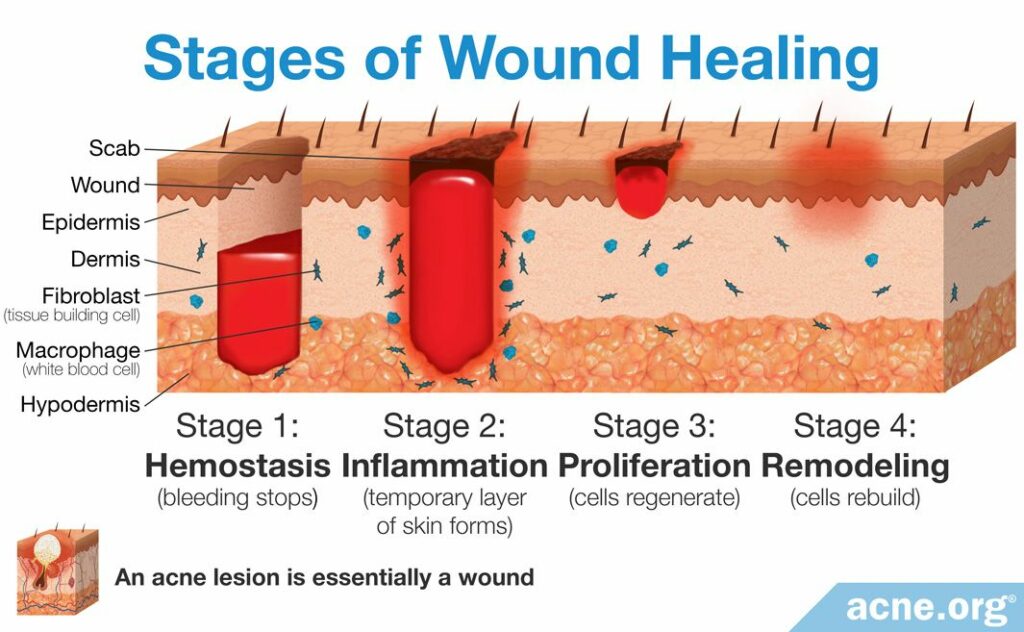
The wound healing process is important to acne. Acne lesions are essentially skin wounds, and slow healing of acne wounds can lead to hyperpigmentation (dark/red spots) or scarring.
Current research on egg whites and wound healing is limited. The findings of 2 recent studies, one on human patients and one on mice, suggest that raw egg white may help wounds heal faster, but more research is necessary to confirm this result.9,10
Another study showed that egg whites might help stimulate the regrowth of skin, which might also speed up wound healing.11
Expand to read details of these 3 studies
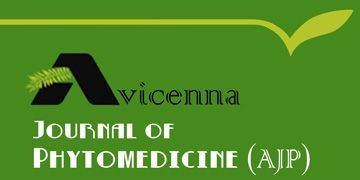
Study 1: This 2019 study in the Avicenna Journal of Phytomedicine looked at the ability of egg whites to speed up the healing of burn wounds. Ninety patients with second-degree burns participated in the study. The researchers divided the patients into two equal groups:
- Group 1 applied egg whites together with a topical antibiotic called silver sulfadiazine to their wounds
- Group 2 applied only the topical antibiotic
The researchers evaluated the healing of the wounds after 1, 7, and 15 days of treatment. The patients in Group 1, who had applied egg whites to their burns, scored better on wound healing. For example, their wounds were shallower and showed better skin regrowth and a healthier skin color.9

Study 2: In this study, published in the journal Food & Function in 2021, researchers tested the ability of proteins in egg white to speed up healing of small skin wounds on the backs of mice. The researchers applied egg white proteins to the wounds for 14 days and monitored the skin for healing as well as for any side effects. The researchers found that egg white proteins promoted the repair of small skin wounds in a dose-dependent manner, meaning that a larger amount of egg white protein was more effective. They did not observe any side effects, and the wounds were almost fully healed after 10 days.10

Study 3: In this in vitro study, researchers evaluated the effect of an egg white protein called ovomacroglobulin on the body’s production of fibroblasts. Fibroblasts are cells important in wound healing. The study examined both mice and human skin cells. The results, reported in the Journal of the Science of Food and Agriculture in 2016 suggested that raw egg white could increase the production of fibroblasts. These preliminary results indicate that egg whites may help wounds – including acne wounds – heal faster, but more research is needed.11
Pro- and Anti-inflammatory Properties of Egg White
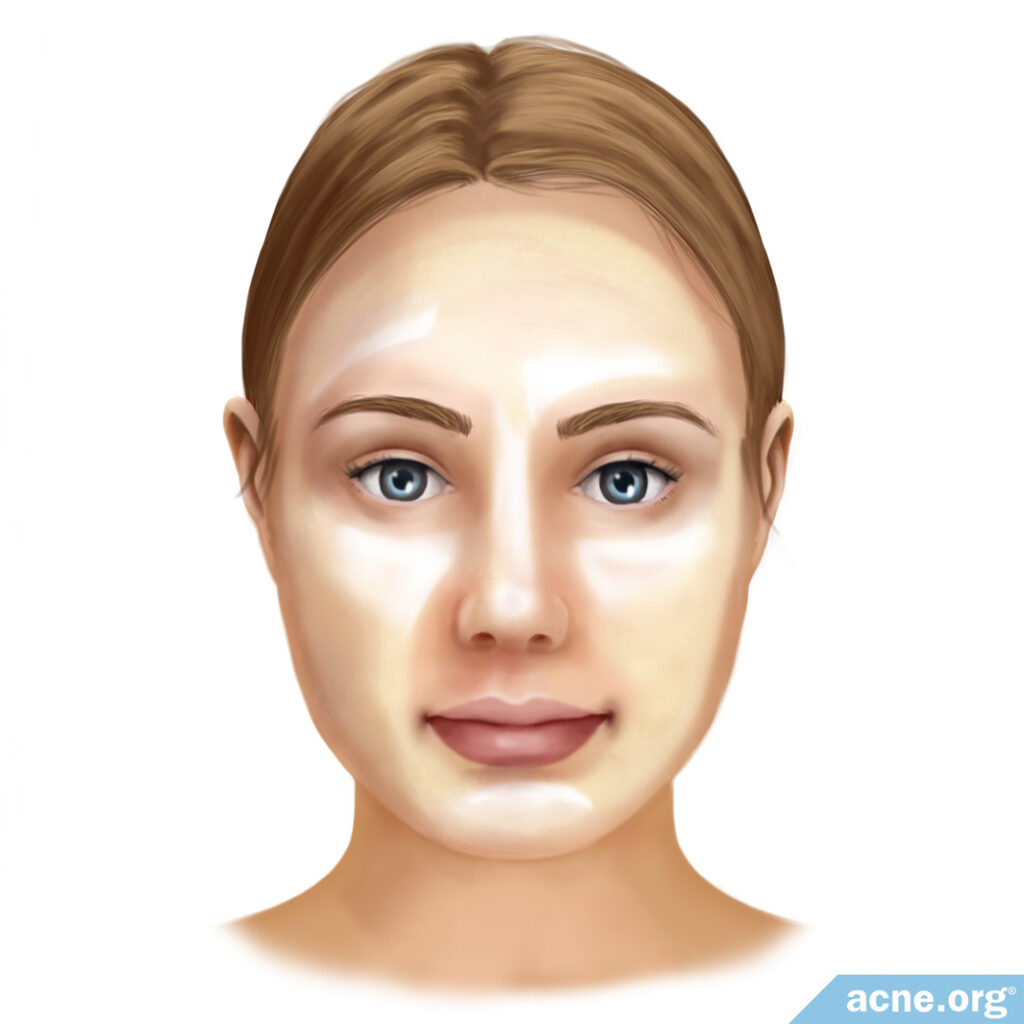
Acne is an inflammatory disease.
Although researchers have not studied topical egg white masks in the treatment of acne, they have studied the ways in which egg whites affect inflammation when people eat eggs. Data from these studies can help us hypothesize about whether the topical use of egg white acts in a similar manner. From what we can discern so far, eating egg white may:
- Increase inflammation in healthy people and in people who are allergic to eggs.
- Decrease inflammation in overweight or diabetic people.
But don’t draw too many conclusions from this yet. We will need studies on the effect on inflammation after topical application of egg white before we can say anything with certainty.
Expand to read details of egg white’s effect on inflammation
Egg whites contain several compounds that possess both pro- and anti-inflammatory properties. In other words, some proteins in egg white can increase inflammation and some can reduce it. These proteins include ovalbumin, ovotransferrin, ovomucin, lysozyme, and avidin.7
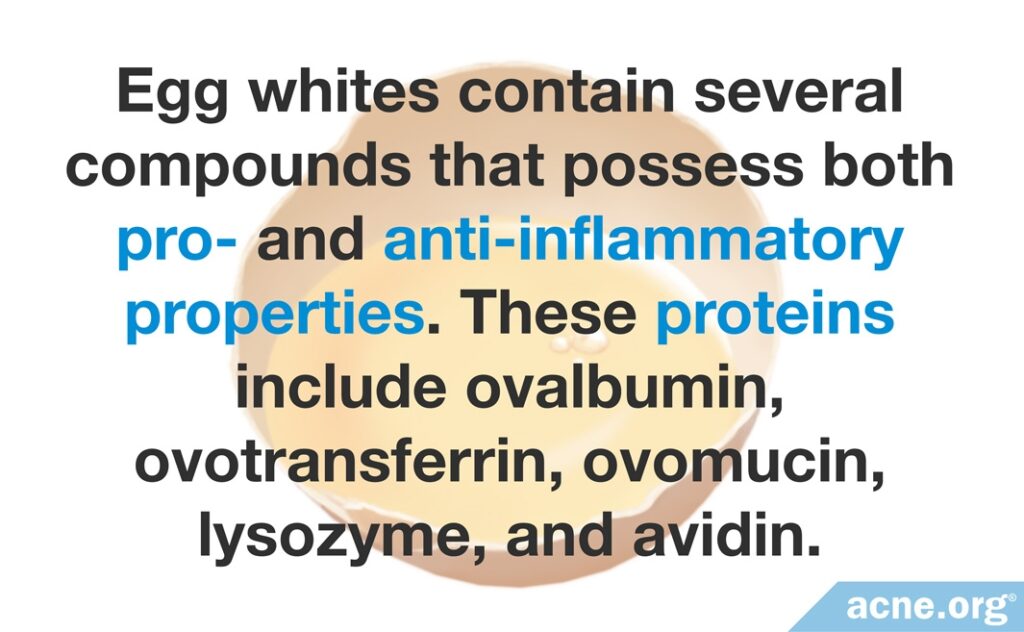
Research has looked at levels of inflammatory substances in the blood stream before and after people eat eggs and has found that body weight and overall health are both important factors in determining whether egg consumption causes inflammation or reduces inflammation. Among healthy individuals, eating eggs increases inflammation in the body. In contrast, when overweight and diabetic people eat eggs, inflammation levels either drop or remain steady.7
So, dietary consumption of eggs may either increase or reduce inflammation depending upon a person’s overall health. However, there is currently no information on the topical application of egg whites, making it difficult to hypothesize about how topical application of egg whites might affect skin inflammation associated with acne.
Of course, some people are allergic to eggs and, for these individuals, egg consumption increases inflammation in the body. If you experience an allergic reaction when you eat eggs, it is best not to apply them topically.6
The Bottom Line
Nature evolved egg whites to protect the growing embryo from bacterial invaders and to keep it healthy. It makes sense that the antibacterial and wound healing properties of egg whites might therefore help with acne to some degree. However, this is merely a hypothesis at this point since there is no direct evidence on topical egg whites and acne.
How to Do It:
If you would like to try an egg white mask at home, use this easy-to-follow process:
- Wash the skin with warm or cool water, using a gentle cleanser designed for acne-prone skin. Use only your bare hands to very gently wash and rinse.
- To separate the egg white from the yolk: Crack one egg over a bowl and transfer the yolk back and forth from shell to shell. Do this until all of the egg white ends up in the bowl. Discard the egg yolk or set it aside for another recipe.
- Using a fork or whisk, rapidly beat the egg white until frothy.
- Using your fingers or a cotton pad, very gently apply a thin layer of egg white to the skin. Avoid rubbing the skin, as this can cause irritation, and physical irritation can lead to more breakouts.
- Leave the mask on for 15 minutes.
- Rinse thoroughly with warm water and very gently pat dry. You can now apply additional products to your skin if you wish.
References
- Abeyrathne, E. D. N. S., Lee, H. Y. & Ahn, D. U. Egg white proteins and their potential use in food processing or as nutraceutical and pharmaceutical agents – a review. Poult. Sci. 92, 3292 – 3299 (2013). https://www.ncbi.nlm.nih.gov/pubmed/24235241
- Giansanti, F., Leboffe, L., Angelucci, F. & Antonini, G. The nutraceutical properties of ovotransferrin and its potential utilization as a functional food. Nutrients 7, 9105 – 9115 (2015). https://www.ncbi.nlm.nih.gov/pmc/articles/PMC4663581/
- Guyot, N. et al. Antibacterial activity of egg white : influence of physico-chemical conditions. Egg meat Symp. 69, 1 – 15 (2013). https://www.ncbi.nlm.nih.gov/pubmed/27601682
- Feeney, R. E. & Nagy, D. A. The antibacterial activity of the egg white protein conalbumin. J. Bacteriol. 64, 629 – 643 (1952). https://www.ncbi.nlm.nih.gov/pmc/articles/PMC169404/
- Chen, L. L., Shi, W. P., Zhang, T. D., Zhou, Y. Q., Zhao, F. Z., Ge, W. Y., Jin, X. Q., Lin, W. J., Guo, W. H. & Yin, D. C. Antibacterial activity of lysozyme-loaded cream against MRSA and promotion of scalded wound healing. Int. J. Pharm. 627, 122200 (2022). https://pubmed.ncbi.nlm.nih.gov/36155893/
- Suphioglu, C. Cracking the egg: immunological and molecular analysis of egg allergens. in Egg Allergy Presentation 1 – 11 https://pdfs.semanticscholar.org/87ac/a1345a8d9923724e9175ce45edd3baf76b18.pdf
- Andersen, C. J. Bioactive egg components and inflammation. Nutrients 7, 7889 – 7913 (2015). https://www.ncbi.nlm.nih.gov/pmc/articles/PMC4586567/
- Legros, J., Jan, S., Bonnassie, S., Gautier, M., Croguennec, T., Pezennec, S., Cochet, M. F., Nau, F., Andrews, S. C. & Baron, F. The role of ovotransferrin in egg-white antimicrobial activity: A review. Foods 10, 823-844 (2021). https://pubmed.ncbi.nlm.nih.gov/33920211
- Jahani, S., Ashrafizadeh, H., Babai, K., Siahpoosh, A. & Cheraghian, B. Effect of ointment-based egg white on healing of second- degree wound in burn patients: a triple-blind randomized clinical trial study. Avicenna J. Phytomed. 9, 260-270 (2019). https://www.ncbi.nlm.nih.gov/pubmed/31143693
- Ge, H., Jiang, Y., Ning, Z., Hu, Z., Ma, S., Shao, Y., Liu, J. & Zhang, T. Supplementation of egg white peptides on attenuating skin mechanical damage symptoms: a promising way to accelerate wound healing process. Food Funct. 12, 7688-7698 (2021). https://pubmed.ncbi.nlm.nih.gov/34282438/
- Geng, F., Huang, X. & Ma, M. Hen egg white ovomacroglobulin promotes fibroblast migration via mediating cell adhesion and cytoskeleton. J. Sci. Food Agric. 96, 3188 – 3194 (2016). https://www.ncbi.nlm.nih.gov/pubmed/26467490
 Acne.org Products
Acne.org Products